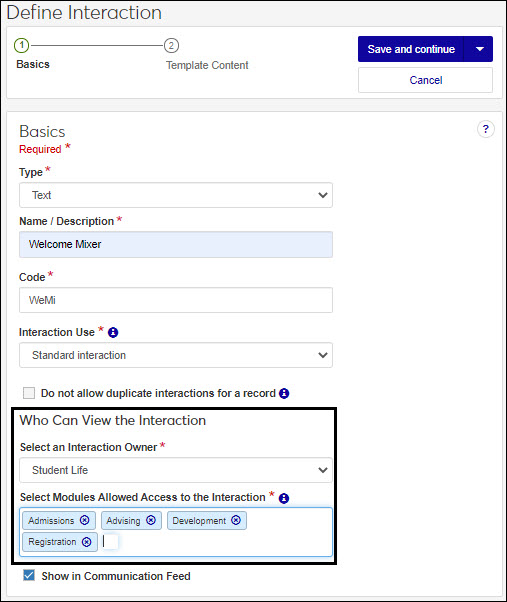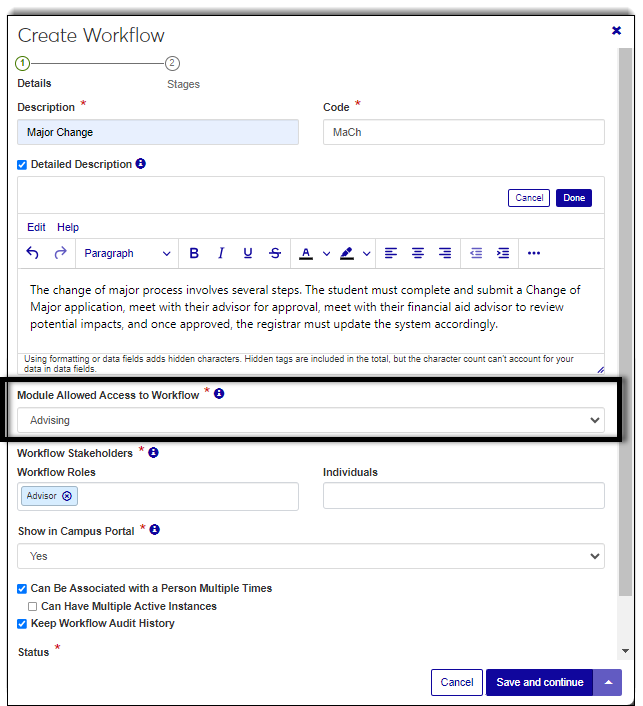Module Access Codes
Important
Information and features vary according to the roles to which you belong and the permissions associated with those roles. For more information, contact your module manager or your campus support team.
Module Access codes are loosely based on Desktop's Module Code Stamp and control who can work with different interactions based on the roles they belong to. Module Access codes are associated with J1 Web roles, and roles can have multiple access codes enabled. Adding a user to different roles grants them access to any interactions associated with the codes accessible to those roles.
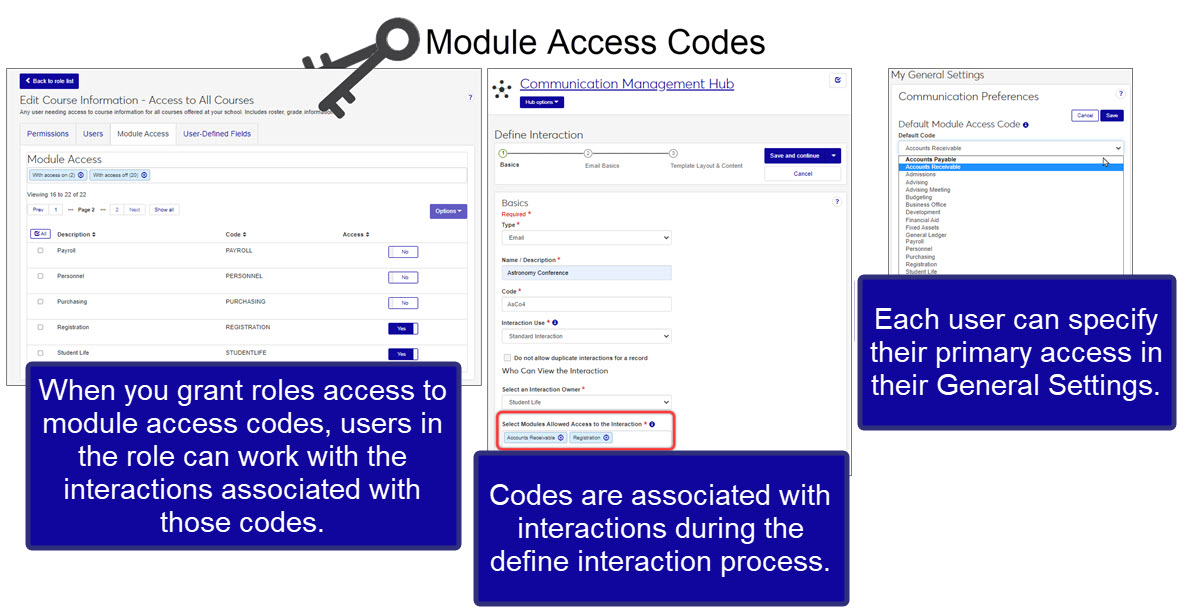
Jenzabar provides these codes based on Jenzabar modules and you can create custom ones from the Access Codes page. Users assigned to multiple roles can access interactions and data sets associated with those codes. If a user belongs to more than one role, they’ll have access to the interaction codes available with each.
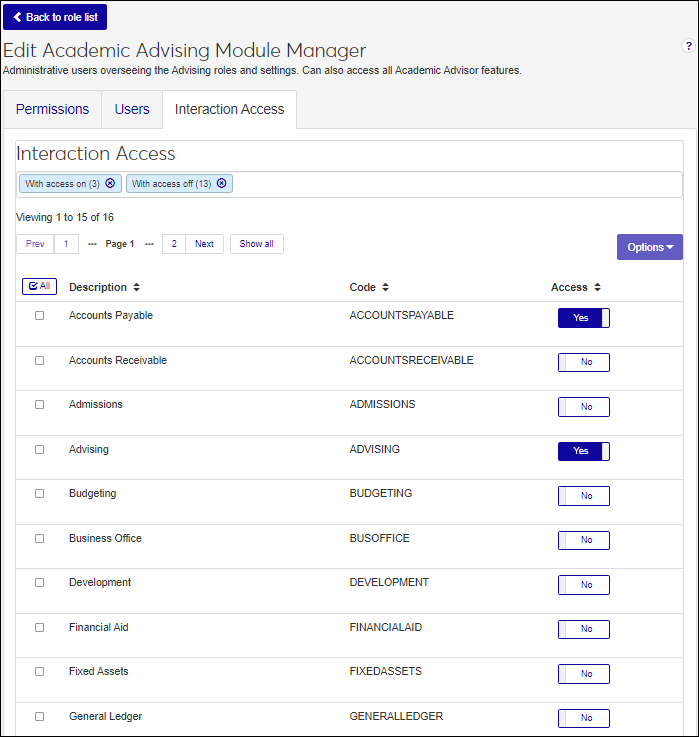 |
When an interaction is defined or created, it is associated with the Module Access code. Users in roles with permissions to those module codes can view/work with the interaction.
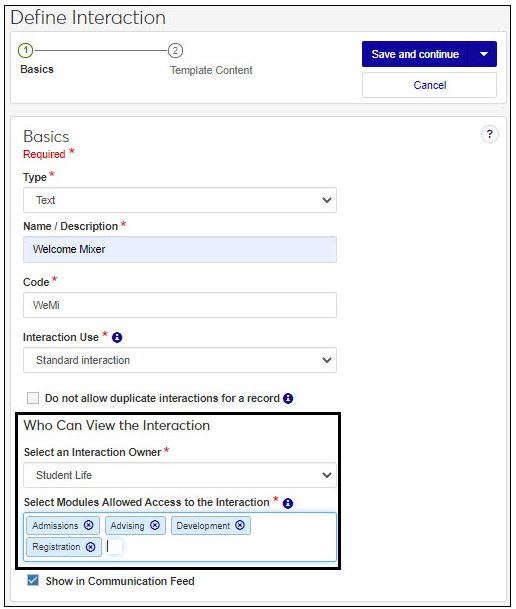
Module Access codes are loosely based on Desktop's Module Code Stamp. They control who can work with different interactions and workflows. Codes are associated with interactions and workflows when they're defined and created. J1 Web roles can have multiple access codes enabled and users that belong to multiple roles will have access to the interaction codes available with each.
Access the Edit Role page, Module Access tab.
From the Access column, click the No and Yes option to grant and prohibit access to the interaction and workflow codes. Consider which departments would benefit from seeing different interactions with students or staff. For example, registration users might benefit from being able to view/comment on advising interactions and workflows.
